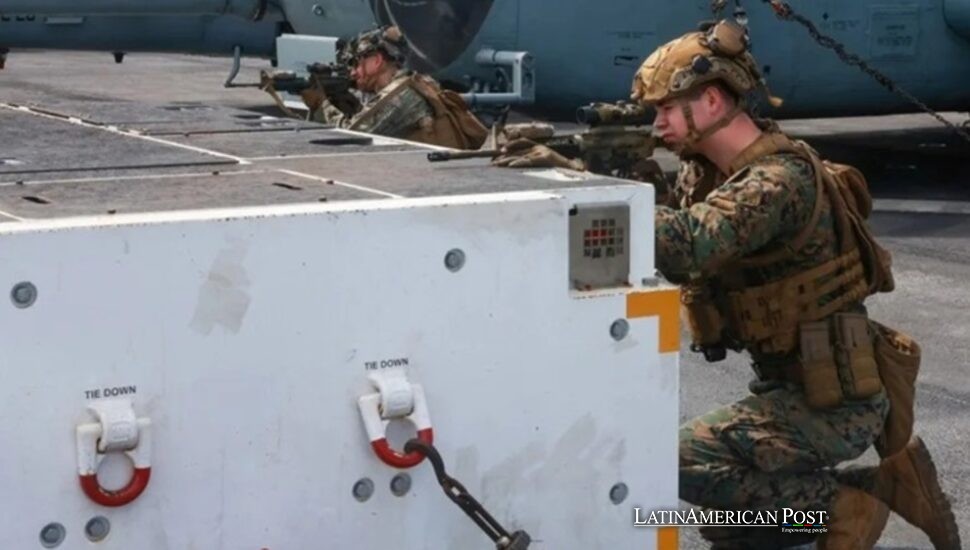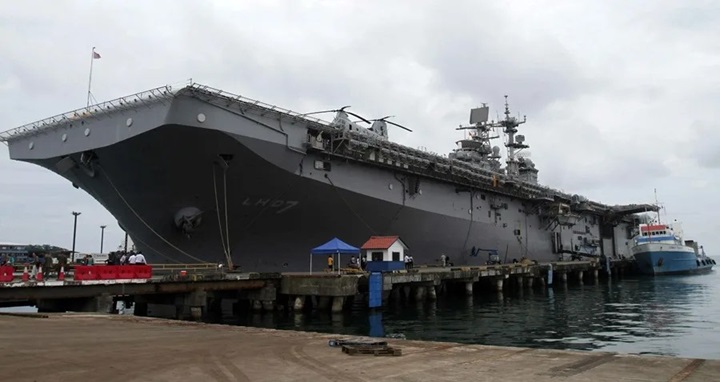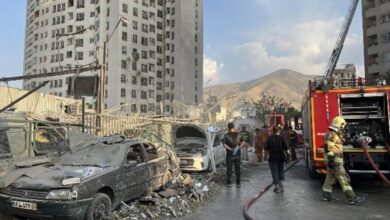A Narrow Strait, a Widening Rift: U.S. Warships, Trinidad’s Turn, and Venezuela’s Fury in the Caribbean

On a clear morning from Venezuela’s Paria Peninsula, the island of Trinidad is so close you can almost count the waves between them. For generations, that eleven-kilometer stretch of sea has carried fishermen, smugglers, oil technicians, and families who share language and lineage across the Gulf of Paria. Now, it carries tension. Since Washington stepped up its military presence in the Caribbean—deploying ships and aircraft in what it calls a counternarcotics mission—the same narrow waterway has become a fault line, splitting one of the region’s most delicate relationships.
A Narrow Strait, a Widening Rift
Patrol boats cut through the dawn haze near Venezuela’s eastern coast, their silhouettes sharper and more frequent than locals remember. EFE’s reporting found that the increased U.S. and Trinidadian patrols have already disrupted traditional crossings, forcing small skiffs to hug the coast or stay moored altogether. What Washington calls an anti-drug effort, Caracas brands an act of intimidation.
Trinidad and Tobago, which sits just eleven kilometers away at the strait’s tightest point, has embraced the partnership, hosting joint exercises with the United States Navy and Coast Guard. Venezuela’s government responded with fury, calling the drills a “provocation.” Officials in Caracas claim the maneuvers are not about narcotics but “preparation for aggression.”
“The state next door has decided to subordinate itself to Washington’s interests,” President Nicolás Maduro thundered during a televised address. Trinidad’s Foreign Affairs Ministry swiftly rejected the charge. The training, it insisted, was “standard counternarcotics cooperation” aimed at protecting regional waters, not threatening neighbors. Yet for the first time in years, a short sea route has become a geopolitical border—a sliver of blue water where suspicion runs deep.
Gas, Diplomacy, and a ‘Persona Non Grata’
The political fire spilled quickly into the energy market that binds the two countries. On the same day Venezuela denounced the military drills, Maduro suspended all gas agreements with Trinidad and Tobago, calling the move a necessary defense against “foreign aggression.”
Within hours, Venezuela’s National Assembly, dominated by Maduro’s allies, declared Trinidadian Prime Minister Kamla Persad-Bissessar “persona non grata.” Lawmakers accused her of joining a “systematic plan to attack the sovereignty and peace of the Venezuelan people.” The censure was symbolic but costly: it froze years of painstaking progress on joint gas projects that required both governments to seek U.S. sanctions waivers to move forward.
“Relations between Port of Spain and Caracas are at one of their lowest points,” analyst Mariano de Alba told EFE. He noted that Trinidad had “abandoned the neutrality it once maintained” in favor of closer alignment with Washington.
The result is a rapid diplomatic divorce. Trinidad and Tobago is now deepening cooperation with Guyana, Grenada, and Suriname—neighbors with growing offshore gas potential—and, crucially, coordinating with the United States to ensure any future Caribbean gas projects “do not significantly benefit” the Venezuelan state. For an island nation that once balanced between giants, the shift marks a bold—some say risky—recalibration.
Neutral No More? The Panama Parallel and the Law
To Caracas, the pattern feels familiar. Venezuelan officials argue that U.S. naval deployments in Caribbean waters are a prelude to intervention, comparing the exercises to the military buildup that preceded the 1989 invasion of Panama. De Alba, however, offers a colder legal assessment. Hosting U.S. forces for a limited time, he told EFE, “does not violate international law” because it occurs with the consent of Trinidad and Tobago—a sovereign state.
Still, legality does not calm the politics. “Authorizing a foreign power to use national waters as a logistics platform,” he warned, “will generate greater tension between Venezuela and Trinidad and Tobago, and potentially across the Caribbean.”
For decades, Caribbean nations have survived by avoiding hard edges—keeping neutrality as a form of defense. Port of Spain’s decision to align so openly with Washington breaks that tradition. Whether it endures may depend on how carefully the United States calibrates its presence—and how far Caracas is willing to turn outrage into action.
Maduro’s government has so far confined its retaliation to rhetoric and energy measures, but the narrative of encirclement plays well at home. It turns foreign maneuvers into proof of persecution and rallies the president’s base under the banner of defiance.

EFE/Gabriela Téllez
Signals, Not Shots—and the Risk That Travels
Washington’s Caribbean buildup carries multiple messages: deterrence against drug networks, reassurance to regional partners, and a show of persistence in a hemisphere crowded with crises. But signals travel differently across the sea.
In Port of Spain, U.S. ships represent a partnership—help against traffickers that small island navies can’t chase alone. In Caracas, they appear as encroachment—a line of gray hulls creeping closer to Venezuelan oil platforms and fishing grounds. And in the fishing towns that depend on the Gulf of Paria’s informal economy, EFE found that the consequences are immediate: more patrols mean fewer crossings, fewer sales, fewer remittances.
Analyst de Alba cautioned that using a Caribbean country “as a logistics platform to intimidate another militarily” can trigger a chain reaction of diplomatic and economic fallout. In a region with long memories of invasion and proxy wars, even exercises can feel like the first move on a chessboard no one wants to play.
The risk is not a gunfight at sea but a slow cascade—angry speeches, economic retaliation, migration pressures, and the quiet erosion of trust between neighbors. Already, Venezuelan officials have hinted at tightening controls on border travel, and human-rights observers warn that stricter patrols could push desperate migrants toward longer, deadlier routes.
For now, the map looks simple, but the politics do not—a U.S. task force drills with a willing host. A neighboring government denounces the maneuvers, suspends energy ties, and hardens its rhetoric. International law keeps the actions technically clean, but the fallout muddies everything else.
Along the eleven-kilometer seam of water that separates Trinidad from Venezuela, boats still cross—fewer each day, watched by more eyes. The strait that once linked two economies and two peoples now feels like a frontier between worlds: one anchored to Washington’s security logic, the other clinging to its sovereignty narrative. Between them, ordinary islanders and coastal villagers navigate the same sea with new caution, wondering whose patrol they’ll meet first.
Also Read: Amazon Green Returns Even as Chainsaws Hum a Relentless Chorus
As de Alba told EFE, “The Caribbean’s small states dislike anything that hints at conflict.” But conflict no longer needs cannons. In these crowded waters, a rumor, a maneuver, or a misread signal can be enough to change the current.





